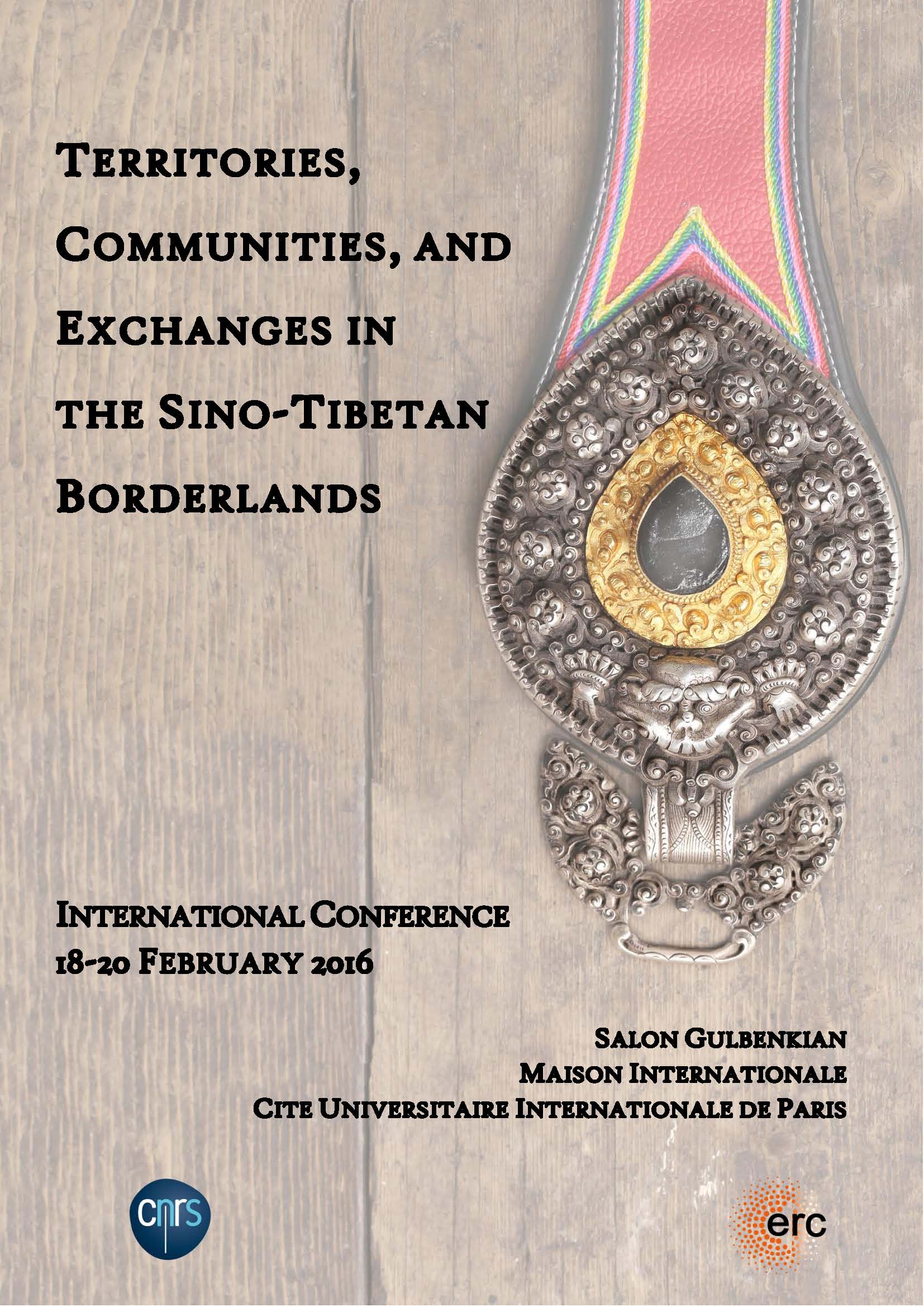Notice
Yudru Tsomu (Sichuan University), " Rise of a Political Strongman in Dergé in the Early Twentieth Century: A Story of Jagö Topden"
- document 1 document 2 document 3
- niveau 1 niveau 2 niveau 3
Descriptif
This paper discuses rivalry for the throne of Dergé between 1890 and 1940. In the late nineteenth and early twentieth centuries, internecine feuds created a power vacuum serious enough to invite intervention from Qing and Lhasa authorities. To bolster the royal family’s position, the nobility not only sought alliances with the Qing and later with the nationalist regime in China, they also established close ties with Lhasa. But outside powers eventually undermined the royal family’s authority and lead to its downfall.
Feuding created an opportunity for subordinate headmen to vie for power. This phenomenon is well illustrated by the ascendancy of Jagö Topden, who emerged as the charismatic strongman in Dergé in the first half of the twentieth century. He displayed masculine qualities of a leader while Queen Jamyang Pemo was feminized as weak. Jagö Topden proved to be an adept player of politics and was able to gain popular support from the local population, who were tired of the instability. My paper explores the reasons for the crisis in royal succession, the culture of machismo, and the local network of alliances based on kinship and trade that enabled Jagö Topden to emerge as the paramount political figure in Dergé. The ascendancy of Jagö Topden exposes the precarious state of the King’s rule. Jagö Topden may have been aware of the ideological and social changes in China. He effectively adopted the populists’ cause of social reform and thus was able to wrest power away from the Dergé royal family and position himself as the paramount authority in Dergé. Had it not been for the victory of Communists and the establishment of PRC, Jagö Topden might well have become the new ruler of Dergé.
International conference “Territories, Communities, and Exchanges in the Sino-Tibetan Kham Borderlands,” Februray 18-20, 2016. This conference is an outcome of a collaborative ERC-funded research project (Starting grant no. 283870).
For more information, please visit the project's Website: http://kham.cnrs.fr
Dans la même collection
-
C. Pat Giersch (Wellesley College), "Patterns of Inclusion and Exclusion Along Twentieth-Century Ch…
In recent years, increasingly sophisticated work has traced the remarkable changes in early twentieth-century state-building along China's southwestern and Tibetan borderlands. During this same period
-
Lucia Galli (University of Oxford), "The Price of Enlightenment: The Travel Account of Kha stag ʼDz…
Frontier territories characterised by intense socio-economic, political, and cultural inter-actions, in the mid-nineteenth century the easternmost fringes of the Tibetan plateau saw the rise of the
-
John Bray, "French Catholic Missions and Sino-Tibetan Trade: Local Networks and International Enter…
The Missions Étrangères de Paris (MEP) sent their first missionary on an exploratory mission to the Sino-Tibetan borderlands in 1847, and they retained a presence in the region until 1952. Together
-
Chen Bo (Sichuan University), “House Society” Revisited "
In this paper, I will begin by considering the concept of “house society” and its applicability to Southwest China. I ask the question of why no scholar, Levi-Strauss included since he originally
-
Eric Mortensen (Guilford College)," Boundaries of the Borderlands : Mapping Gyalthang"
This project seeks to discern the physical and conceptual boundaries of the Tibetan region of Gyalthang, in southern Kham. At issue are questions about the relationships between older
-
Fabienne Jagou, " Manchu Officials’ Khams Travel Accounts: Mapping a Course Through a Qing Territor…
Throughout the Qing dynasty (1644-1911), more and more travelers –officials, military and merchants- went to the Southwest border of China and dedicated some of their time to writing travel accounts,
-
Isabelle Henrion Dourcy (University of Laval), "Making Movies in the Gesar Heartland: The Burgeonin…
This conference is an outcome of the collaborative ERC-funded research project “Territories, Communities, and Exchanges in the Sino-Tibetan Kham Borderlands” This research project focuses on the
-
Elizabeth Reynolds (Columbia University), " Monasteries, Merchants, and Long Distance Trade: The Ec…
Pre-1959 Tibet was not a “closed off land” as is often assumed, but a place of dynamic economic structures and a diverse body of economic actors. The Trehor region, an area located in modern day
-
Tenzin Jinba (National University of Singapore), " Two Gyalrong Weddings Under Fire: Rethinking of …
Two weddings in 2009 and 2015 respectively have received wide publicity among Tibetans and others within and out of China. The first was that of Lobsang Dundrup, a renowned singer from Gyalrong, and
-
Katia Buffetrille (Ecole Pratique des Hautes Etudes), " The Increasing Visibility of the Borderland…
For centuries, Central Tibet and its capital Lhasa were regarded as the center—as is obviously expressed in the very name of the region in Tibetan, dBus, “Center”—of political and religious life in
-
Scott Relyea (Hamline University), " Settling Authority: Sichuanese Farmers in Early Twentieth Cent…
From 1907 to 1911, some 4,000 commoners from the Sichuan Basin ventured west. Enticed by promises of large tracts of uncultivated land and three years of free rent, seeds, animals, and farm implements
-
Dawa Drolma (Bay Path University), " The Renaissance of Traditional Dzongsar Craft-making in the Me…
As a member of a deeply-rooted traditional craft-making family in the Meshö (Sman Shod) Valley of Kham region, I will present the results of my ongoing fieldwork and academic study on the renaissance













